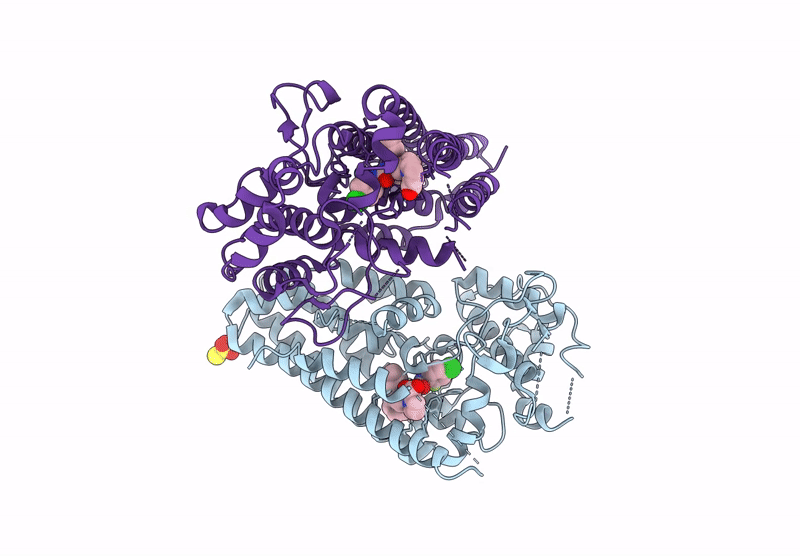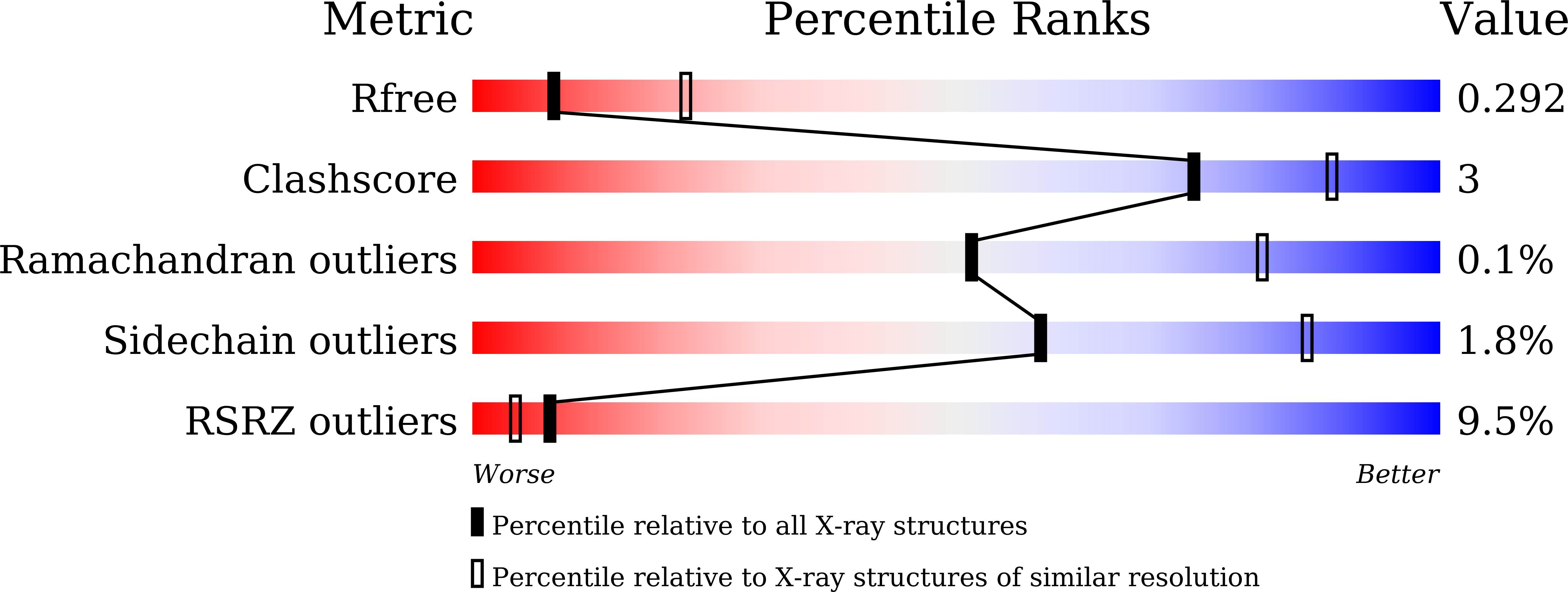
Deposition Date
2023-02-01
Release Date
2023-02-15
Last Version Date
2024-10-16
Entry Detail
PDB ID:
8I7L
Keywords:
Title:
Crystal structure of indoleamine 2,3-dioxygenagse 1 (IDO1) complexed with a novel inhibitor
Biological Source:
Source Organism(s):
Homo sapiens (Taxon ID: 9606)
Expression System(s):
Method Details:
Experimental Method:
Resolution:
2.80 Å
R-Value Free:
0.29
R-Value Work:
0.27
R-Value Observed:
0.27
Space Group:
P 21 21 21


